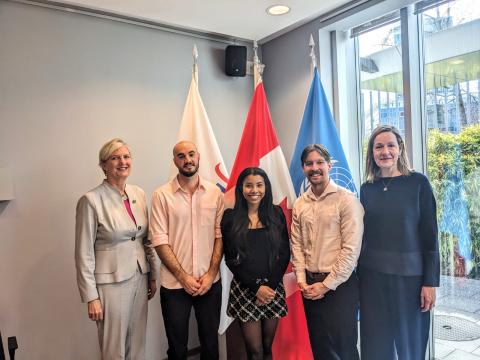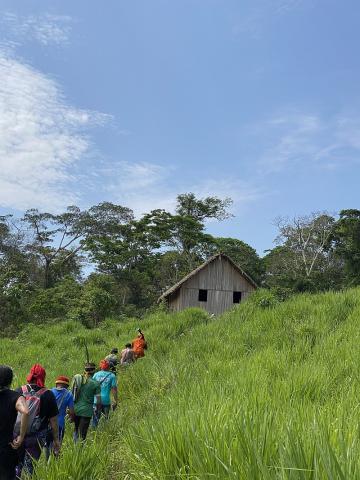Current Clinic Projects
Past Projects
For current students' reflections, critiques, and thoughts on their experiences working on these projects, please visit the Allard IJHR Clinic blog.
International Justice and Human Rights Clinic Projects, 2014-2025
From 2014-2025, students at the Allard IJHR Clinic worked on projects with a wide array of partners, including:
- The International Criminal Court (Office of the Prosecutor)
- The United Nations Human Rights Committee
- The Extraordinary Chambers in the Courts of Cambodia (Supreme Court Chamber)
- Transparency International (Berlin Secretariat)
- Litigation teams suing Canadian corporations in Canadian courts for abuses committed abroad
- Pacific Network on Globalisation (PANG)
- Blue Ocean Law
- The International Labour Organization
- Scholars at Risk
- Coalition for Academic Freedom in the Americas (CAFA)
Additionally, students contributed to report drafting on a wide range of human rights topics they identified throughout the course of their studies:
- Ending Impunity for Corruption: Developing Domestic Mechanisms and Prosecuting Grand Corruption as an International Crime (April 2016).
- Accountability in Foreign Courts for State Officials’ Serious Illegal Acts: When Do Immunities Apply? (December 2016).
- In the Dark: Bringing Transparency to Canadian Supply Chains (June 2017).
- Motion 103 in Action: Canada’s International Obligations toward Religious and Racial Minorities (December 2017).
- Breaking New Ground: Investigating and Prosecuting Land Grabbing as an International Crime (delivered to the ICC, December 2017; public version published March 2018).
- Protecting Whistleblowers: A Framework for Model Whistleblower Legislation (April 2018).
- A Comparative Analysis of Resource-Based Regulatory Regimes in Canada and Papua New Guinea.
- Surveying the International Legal Framework on Corruption and Human Rights.
- Permanent Sovereignty over Natural Resources in French Polynesia: An Argument for Decolonisation.
Students have participated in trial monitoring:
- Monitored mass criminal trial in N’Djamena, Chad of twenty-four henchmen of former dictator Hissène Habré
- Monitoring ongoing litigation in British Columbia courts where foreign plaintiffs seek redress against Canadian corporations for rights abuses.
The Clinic additionally monitors Canadian human trafficking case law and maintains a database and case commentary on all reported Canadian human trafficking cases.

